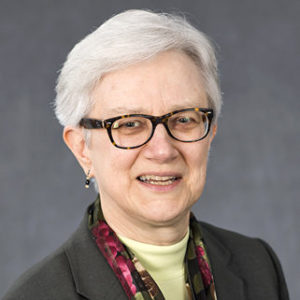3rd Sunday in Advent
December 17, 2017

Readings:
First Reading: Isaiah 61:1-2A, 10-11
Responsorial Luke 1:46-48, 49-50, 53-54
Second Reading: 1 Thessalonians 5:16-24
Gospel: John 1:6-8, 19-28
In the tradition of the Catholic Liturgical Calendar, the Third Sunday of Advent is called Gaudete Sunday. Gaudete is the Latin word for “rejoice.” Closing in on the end of the season of Advent–a period of penance, self-reflection, and renewed commitment to a Gospel way of life–we pause to anticipate the fullness of our spiritual rebirth that is made possible by the coming of Christ at Christmas. Symbolically, this anticipation is expressed by the rose color of the third candle in the Advent Wreath and the vestments–a shift to a brighter hue of violet on the color spectrum.
Yet, as we move from the sacred space of liturgy and prayer to the “real world” of daily life, we are bombarded with loss, pain, violence, and discord that seem to contradict any reason to “rejoice.” For those who have lost loved ones, the anticipation of the holidays only amplifies the dissonance. Others are tempted to give in to “compassion fatigue” as end of the year appeals from religious and charitable groups fill the mailbox–with the guarantee that one’s donation is “fully tax deductible.” Indeed, there seems to be little to rejoice about in all of this! So–how do we “feel joy and great delight” amid all of this?
“Rejoice” is a rare term in today’s vocabulary. Webster’s tells us that “joy” is the emotion evoked by well-being, success, or good fortune, or by the prospect of possessing what one desires.” But just what is it that we desire? To answer this question we need to reflect on two other queries: Who am I? Why do I do what I am doing? Our readings for today can assist us in responding.
The First Reading begins: “The spirit of the Lord…”. (It is important to realize it is this text that Jesus claimed as outlining his mission in the world cf. Lk. 4: 16-20). What is that spirit, and is that a spirit that defines you and me in any way? Isaiah gives us an image of God who empowers, saves, and inspires hope. In the prophet’s telling, it is God who enfolds us in justice. We are never alone, and each of us is a person-in-relationship with God, other people, the earth, and of selves.
It is that same spirit that animated the Thessalonian Christians to live with a sense of gratitude and integrity while awaiting Christ’s return. Just as our ancestors in faith sustained their deepest desires, joys, and hopes while anticipating Jesus’ final advent, we need to open ourselves to prayer and the spirit’s guidance, healing, and empowerment. In this way the deep desire of every human heart for self-discovery and self-actualization is answered in Jesus Christ. John the Baptist exemplifies the kind of integrity that frees us to know who we are and whose we are. When asked by the priests and Levites, “Who are you?” he spoke plainly, “I am not the Christ.” But when he was pressed further, he did claim to be “the voice.” John seemed to know he was called by a just, merciful, and loving God to play a role in the unfolding of salvation in Jesus Christ.
Through our baptism, Christians are called to claim as our own–as did Jesus–the words of Isaiah. Indeed, “The spirit of the Lord God” has been given to us. We have been anointed and sent to “bring glad tidings to the poor, to heal the brokenhearted, to proclaim liberty to the captives, and release to the prisoners, to announce a year of favor from the Lord and a day of vindication by our God. This sentiment was echoed centuries later in the opening lines of the Pastoral Constitution on the Church in the Modern World, Gaudium et spes (Joy and Hope) § 1: “The joys and the hopes, the griefs and the anxieties of the men of this age, especially those who are poor or in any way afflicted, these are the joys and hopes, the griefs and anxieties of the followers of Christ. Indeed, nothing genuinely human fails to raise an echo in their hearts.” One would be hard-pressed to find words more tender and more inviting than these. Each of us has their “bit role” in the unfolding of salvation in the world. Therein, we can find the deep joy that comes with finding our identity and purpose. In light of all of this, as we anticipate Christmas, we can rejoice with Mary the Mother of Jesus–one who clearly knew both the joys and the sorrows of life:
My soul proclaims the greatness of the Lord;
my spirit rejoices in God my Savior,
for he has looked upon his lowly servant.
From this day all generations will call me blessed.
The Almighty has done great things for me,
and holy is his Name.
He has mercy on those who fear him
in every generation.
He has filled the hungry with good things,
and the rich he has sent away empty.
He has come to the help of his servant Israel
for he has remembered his promise of mercy . . . [Lk 1:46-48, 49-50, 53-54]
Sr. Dawn Nothwehr, OSF
Professor of Catholic Theological Ethics
Erica and Harry John Family Chair of Catholic Theological Ethics